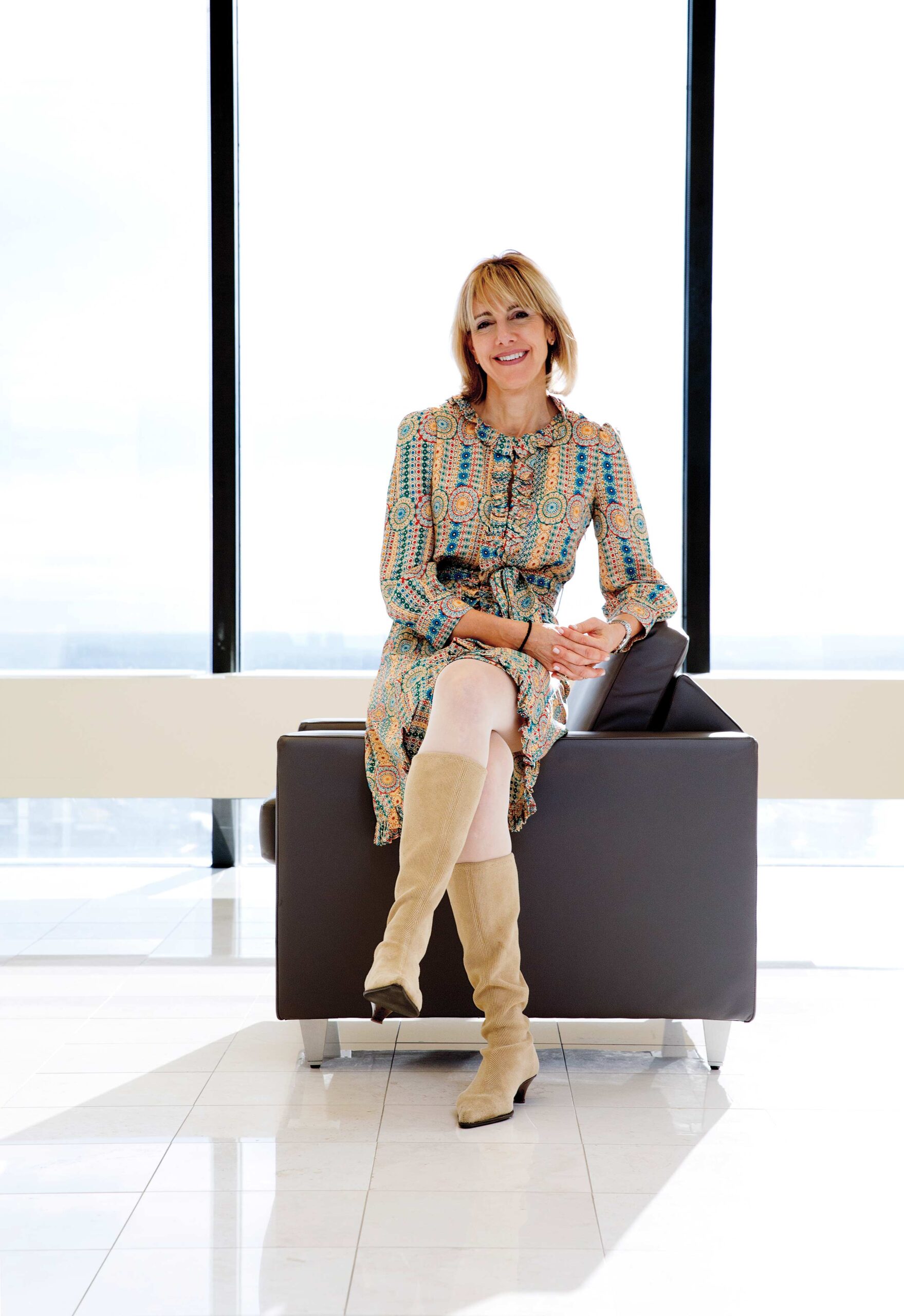Each day at her job at a venture capital firm, Sarah (Burgess) Reed ’91 logs 7 to 8 miles on a treadmill desk, which is outfitted with a work surface that puts her computer, phone, documents—and water—all within easy reach.
“It’s the ‘gameification’ of the law,” jokes Reed, using a term that comes up a lot in the venture capital world. “I’m reading these terribly dry documents all day long, so I play a game with myself of how many miles I can walk while I’m reading them.”
It’s typical of Reed’s approach to problem-solving. From rethinking how venture capital firms meet their legal needs to focusing on broadening access to legal services for all people, she has been a pragmatic innovator.
Early in her career, after practicing in law firms and serving as general counsel at Palomar Medical Technologies in Burlington, Massachusetts, Reed decided that venture capital companies were losing time and money by not having in-house counsel. Outside counsel were continually forced to “reinvent the wheel” on legal issues standard to venture capital firms and their portfolio companies.
At first, her idea failed to gain traction in the venture capital world, but she persisted, peddling a three-ring binder she had created and dubbed “Law Firm in a Box.” It organized a startup company’s legal needs into different tabbed sections: equity, human resources, even estate planning for the entrepreneur. Reed pitched her idea until she met the right match in 2000 and was hired as general counsel by Charles River Ventures, located in Cambridge and Menlo Park, California.
Although new to the venture capital world, Reed quickly saw an opportunity to innovate. Working with the National Venture Capital Association, she initiated a project providing free online access to high-quality, vetted documents. It helped streamline her own practice and won her the NVCA’s Outstanding Service Award in 2007. The project continues to be the NVCA website’s most visited page, and it has been emulated by corporate lawyers around the world, including in Latin America, Europe and Asia.
After more than a decade in venture capital, where she says disruptive innovation is imperative, she is convinced that the same sort of change needs to take place in the legal profession—even if it leads to an erosion of the profit margin for lawyers.
“[I]nnovation that is disruptive is fundamentally about taking a ‘bespoke’ product and making it available and affordable to the mass market,” says Reed, who spoke on “Disruptive Innovation in the Market for Legal Services” last spring at a conference at Harvard Law School sponsored by its Program on the Legal Profession.
“We have lots of people who need lawyers and yet people who cannot find them,” continues Reed. She says the lawyer-written ethical code prohibiting the unauthorized practice of law by nonlawyers should be changed.
“We [in the legal profession] have managed to preserve the right to operate as a cartel, as a monopoly, while at the same time, for all other businesses, that’s illegal.”
Reed wants the unauthorized practice of law rule changed to open up certain areas of practice to nonlawyer professionals. They would be supervised by attorneys and analogous to nurse practitioners in the medical field.
Reed also thinks the legal field should embrace the opportunity to match clients and attorneys over the Internet. She offers as an example JustiServ, a website being developed by Harvard undergraduate Michael Gants (the son of Massachusetts Supreme Judicial Court Justice Ralph D. Gants ’80 and Northeastern Law Professor Deborah Ramirez ’81), whom Reed met at last spring’s conference. Expected to launch this year, the website will publish lawyers’ rates, allowing consumers to compare.
This fall, Reed started in a new venture of her own, as chief operating officer and general counsel for MPM Capital, based in San Francisco and Boston. The life-sciences/biotech venture firm is backing cancer treatment initiatives and has already built and sold the company that created Sovaldi, a cure for hepatitis C.
“I love being thrown into new environments,” she says, “where you have to learn quickly to adapt.”
